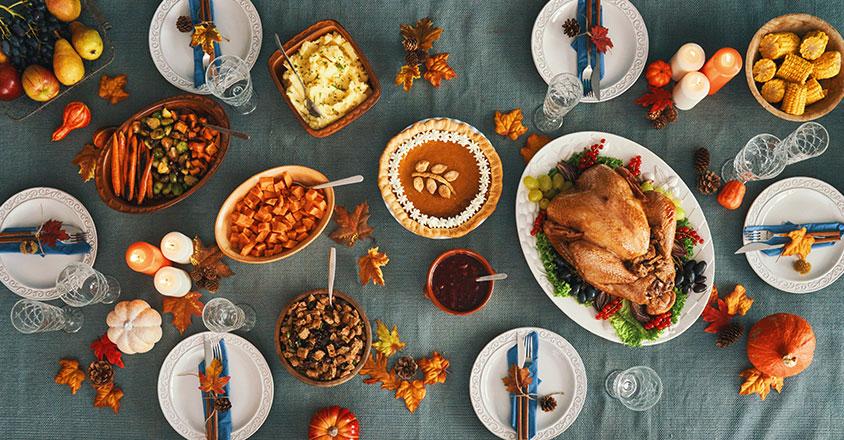

Recipe for avoiding food poisoning
Summer picnics, Thanksgiving dinner or weekend dinner parties entail a lot of food preparation amid the excitement of eating an assortment of cuisine. Did you know that an estimated one in six Americans get sick from food poisoning each year? According to the Centers for Disease Control (CDC), following four simple steps at home can prevent a bad ending to an otherwise good meal.
How do you prevent food poisoning?
Some foods are more associated with foodborne illnesses and food poisoning. Raw or undercooked meat and poultry, raw or lightly cooked eggs, unpasteurized (raw) milk and raw shellfish are the most likely to be contaminated. They can carry harmful germs that can make you sick. Basic kitchen rules – clean, separate, cook and chill – can help protect you and your loved ones from food poisoning.
Clean: wash hands, utensils and surfaces often. Germs that can make you sick can survive in many places around your kitchen, including your food, hands, utensils, cutting boards and countertops. Use hot, soapy water to thoroughly wash your hands, plates and any other surface that comes into contact with raw meat, poultry, seafood, eggs or flour.
Separate: avoid cross-contamination. Use a separate cutting board for raw meat and another for produce.
Cook: food is safely cooked when the internal temperature is high enough to kill germs that can make you sick. Package directions provide the recommended temperature, so use your food thermometer to ensure you're in the safety zone and ensure food is thoroughly cooked.
Chill: refrigerate perishable foods after two hours. If it has been exposed to temperatures of 90°F (like a hot car or summer picnic), then refrigerate it within 1 hour. Refrigerate leftovers promptly to allow for quick cooling.
When to see a doctor for food poisoning
Food poisoning symptoms can be anywhere from mild to very serious. If you swallow contaminated food or drink, it may take hours or days to develop symptoms. Food poisoning symptoms include diarrhea or vomiting.
“There are a lot of steps from farm to table,” said Deanna Holdren, D.O., New Concord Family Practice. "Cooking foods thoroughly and storing them appropriately are easy ways to prevent food poisoning."
See your doctor or healthcare provider if you have symptoms that are severe or persist.
Genesis HealthCare System’s Health and Wellness content conveniently provides accurate and helpful information. Your health history and current health may impact suggestions provided through our Health and Wellness content. Although we hope this information is helpful, it is not a substitute for your doctor's medical advice. Before making any significant changes, please consult your doctor.



